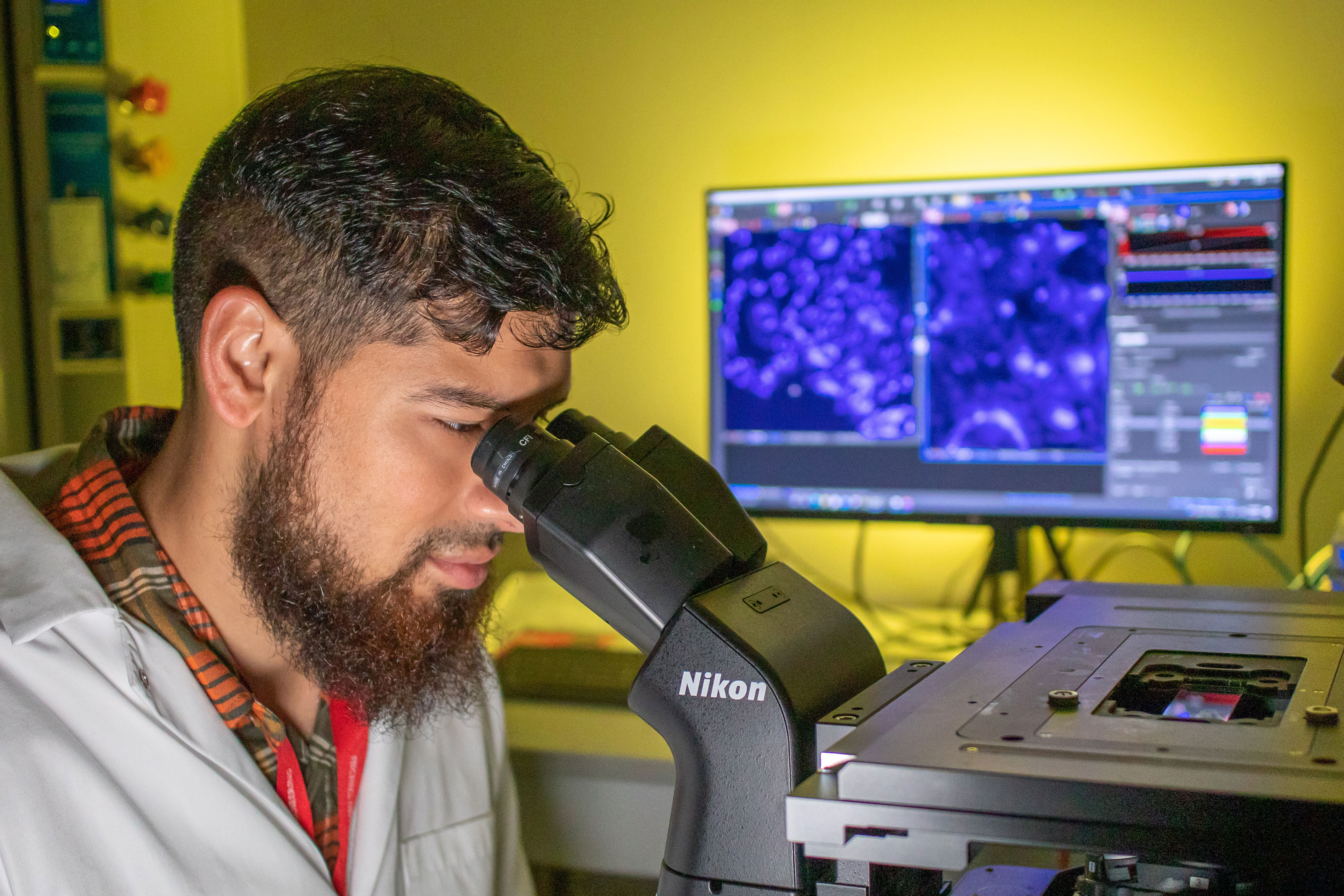Do Suddenly Self-Centered Brain Cells Promote Disease?
Just as an overzealous exercise routine can alienate friends and family or a long series of relaxing evenings at home might lead to missed social opportunities, the brain can go overboard with self-care at the cellular level. Supported by a new $600,000 award from the National Science Foundation, University of Maryland bioengineering Professor Alisa Morss Clyne and chemical and biomolecular engineering Associate Professor Ganesh Sriram are investigating how this dysfunction can arise in brain endothelial cells, which shuttle glucose across the blood-brain barrier—a semipermeable border of cells that keeps most molecules out of the nervous system. Under certain conditions, endothelial cells can lapse into a kind of excessive self-care, repurposing glucose needed by the brain as a whole for their own metabolic needs instead of transporting it. A growing body of evidence suggests this reduced brain glucose metabolism may be a key factor in the development of Alzheimer’s disease and related neurodegenerative diseases. Over 6 million Americans are living with Alzheimer’s, and more than 11 million provide unpaid care for people with the disease or other dementias. In 2020, seed grant funding from the UMD Brain and Behavior Institute initiated the collaboration between Clyne and Sriram to investigate brain glucose transport as a factor in Alzheimer’s progression. “Endothelial cells are normally very giving,” said Clyne. “That’s their purpose; they give away their glucose. But if something is suddenly wrong, they essentially say to the other brain cells, ‘You can’t have this glucose. I need it for myself.’” Research has shown that the brains of patients with Alzheimer’s disease metabolize less glucose, Clyne said, and the new NSF award aims to determine whether this reduction is a problem with glucose transport itself. The team’s goal is to develop and improve metabolic therapies for neurodegenerative disease. The project requires expertise both in the biological mechanics of endothelial cells and in the tools for tracking their activity and its effects. As a bioengineer, Clyne cultures brain endothelial cells and assesses their environmentally dependent outputs. As a chemical engineer, Sriram uses carbon isotopes to tag these outputs and model molecular pathways in biological systems. With their integrated experimental and computational expertise, Clyne and Sriram shed light equally on the “what” and the “how” of glucose transport in brain endothelial cells. “It’s an exciting whole-body problem,” noted Sriram, “How do particular cells affect processes in other, distant parts of the body?” “My approach to this type of biological question is to use skills that are unique to engineering by quantifying the processes that happen in cells,” he continued. “Bringing engineering tools to the bench and to basic science research is something that always enthuses me." The NSF grant includes support for six undergraduate researchers, said Clyne, who serves as the associate chair for diversity, equity and inclusion in the Fischell Department of Bioengineering. Making equity in access to research experiences a top priority has long-term implications for students with financial need, she said. “A student who takes a part-time job to earn money does not have the same capacity to contribute to research as an undergraduate who is able to volunteer in a lab,” she said. “Down the road, the student with fewer research experiences may be less likely to earn fellowship funding in a graduate program or be less competitive for a summer internship or industry position after graduation.” ### Writer: Nathaniel Underland, underlan@umd.edu About the Brain and Behavior Institute: The mission of the BBI is to maximize existing strengths in neuroscience research, education and training at the University of Maryland and to elevate campus neuroscience through innovative, multidisciplinary approaches that expand our research portfolio, develop novel tools and approaches and advance the translation of basic science. A centralized community of neuroscientists, engineers, computer scientists, mathematicians, physical scientists, cognitive scientists and humanities scholars, the BBI looks to solve some of the most pressing problems related to nervous system function and disease.
Related Articles: September 30, 2022 Prev Next |


